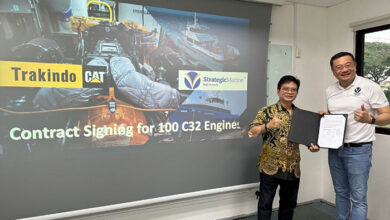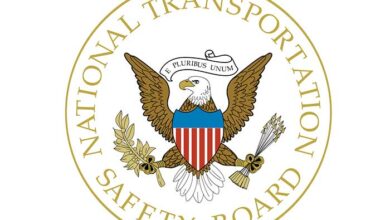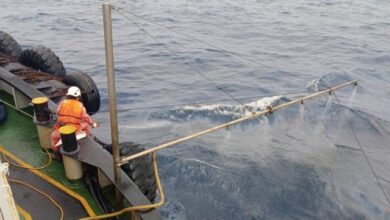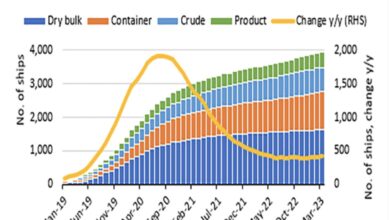ITF: Egyptian fisher nets €20,000 award

Egyptian national Ali Rezk has been awarded the sum for unpaid wages and working time breaches on the part of his employer
The International Transport Workers’ Federation (ITF), which has been running a campaign to improve migrant fishers’ working lives in Ireland for a decade has expressed a mixed reaction to a decision by the Workplace Relations Commission’s (WRC) to award over €20,000 to a migrant fisher because deficiencies in the law prevented the adjudicator from ruling on the whole period he was actually employed.
Egyptian national Ali Rezk has been awarded the sum for unpaid wages and working time breaches on the part of his employer, the fishing vessel owner and retailer Mr Seán Doran. Mr Rezk was employed under Ireland’s atypical work permit scheme – a scheme the ITF and legal experts have been warning produce systemic power imbalances that inevitably lead to exploitation.
The award covers infringements for the final six months of the 33 months that fisher Rezk worked for Doran, and relates to unpaid wages, holiday pay, pay in lieu of public holidays worked. Doran also has to pay substantial compensation for breaches of working time regulations.

Migrant fisher Ali Rezk was underpaid by his employer. Irish authorities have awarded Mr Rezk €20,000, but the ITF said he could be owed much more if changes were made to the law to make it fairer for fishers to recover potential owed wages. | (Credit: Anne-Marie Walsh independent. ie)
Responding to the WRC’s decision, ITF Fisheries Campaign Lead in Ireland Michael O’Brien said: “I firstly want to pay tribute to Ali for stepping forward to make the complaint, and to Colin Smith, BL and Wendy Lyon, Solicitor at Abbey Law, for their work representing Ali in this case. Under the system we have, the odds are stacked against a migrant fisher pursuing justice, let alone keeping their job or ability to stay in this country, if they speak up hence the tendency for cases to be taken after the fisher parts company with the employer.
“A significant aspect of why the adjudicator ruled in favour of the fisher was that Mr Doran’s defence failed to produce records or evidence of hours worked, despite legal requirements to keep such records. said O’Brien.
Despite the favourable ruling for the fisher, O’Brien said the federation still had major concerns “arising from deficiencies in the law” relating to both Mr Rezk’s case, and the welfare of migrant fishers in Ireland generally.
“Cognisable Period” ties the hand of adjudicators to retrieve only a fraction of potential unpaid wages
The ITF’s Michael O’Brien said that under the current Workplace Relations Act 2015, the ‘cognisable period’ that the Workplace Relations Commission can retrieve unpaid wages for is normally only the six months prior to a complaint being submitted, or twelve months in extenuating circumstances as was the case here.
“If we are to end the routine exploitation of fishers the law needs to provide for 100% retrieval of unpaid wages and entitlements,” ITF Fisheries Campaign Lead for Ireland Michael O’Brien said.|
Mr O’Brien said that in this instance, the WRC adjudicator was limited to compensating Mr Rezk for just over €5,500 for just the final six and a half months of the total 33 months that the fisher was employed aboard the vessel.
Mr Rezk was enrolled into the atypical work permit scheme in December 2016 until August 2019 when his employment with the vessel owner ended.
O’Brien revealed Mr Rezk was lucky to even be able to claim the six months he did, “because there was a lapse of four months between the fisher parting with the vessel owner and making himself known to the ITF in order for a complaint to be formulated and lodged, which can happen when there are language or cultural barriers to fishers knowing their rights and avenues of redress.”
“We’re thankful for that decision to recognise ‘extenuating circumstances, but frankly the current rules work to disenfranchise migrant workers who, unlike Irish and EU citizens, can end up enduring exploitative conditions for years before feeling able to seek redress. This fact incentivises protracted underpayment by bad employers.”
“If we are to end the routine exploitation of fishers the law needs to provide for 100% retrieval of unpaid wages and entitlements,” said O’Brien.
Minister must deliver clarity on remedies and jurisdiction for working time at sea breaches
Mr O’Brien said the largest component of the overall award to the Egyptian fisher is the €15,000 compensation for working time breaches.

The fisher testified to routinely working days of 17 hours-plus and being made to be ‘on call’ for the remainder of his time onboard.
“The adjudicator justified this sum, the maximum he could award, with reference to EU law stipulating that compensation should be an ‘effective, dissuasive and proportionate deterrent,” said O’Brien.
“I find this part of the judgement particularly welcome as the ITF has pointed out before that previous penalties have not been significant enough to dissuade vessel owners infringing on the rights and conditions of migrant fishers. By failing to come down hard on exploitative behaviour, the State has allowed a culture of impunity and repeat offending to become entrenched.
“However, we recognise that in the event of an appeal to the Labour Court this particular element of the award will be particularly contested. This is not because of any deficiency in the evidence and testimony of over-work on the part of the fisher which was accepted by the adjudicator.
“Rather this arises from a recent decision by the Labour Court in a separate ongoing migrant fisher case, where, because the Minister for Transport is-transposed the relevant EU directive they ruled that they do not have jurisdiction to hear complaints relating to breaches in working time leaving no effective recourse.
O’Brien said the ITF is backing judicial review proceedings to force the Minister to correctly transpose the Working Time at Sea Directive, “giving migrant fishers and their representatives a clearer and unarguable path for recourse.”
About the ITF :
The International Transport Workers’ Federation (ITF) is a democratic, affiliate-led federation recognised as the world’s leading transport authority. We fight passionately to improve working lives; connecting trade unions from 147 countries to secure rights, equality and justice for their members. We are the voice for nearly 20 million working women and men in the transport industry across the world. The ITF’s affiliates in Ireland are SIPTU, UNITE and FORSA.














